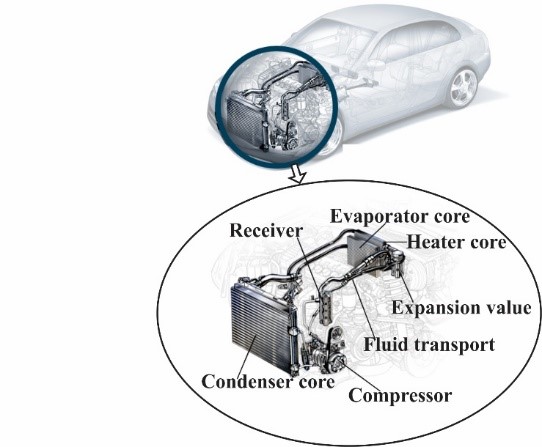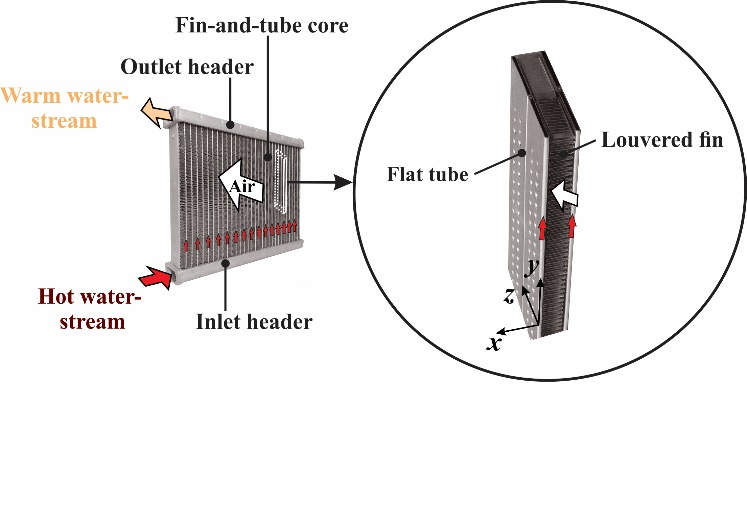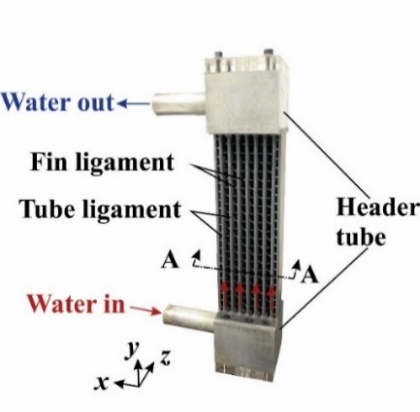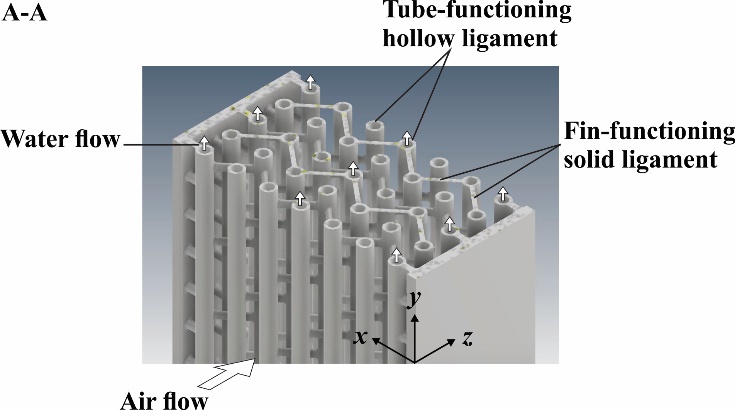Louvered fin-and-tube cores have been the most popular choice for enhancing the heat transfer performance of compact heat exchangers such as automotive climate control systems (ACCS), because of their moderate heat removal capacity with least pressure drop compared to other heat exchanger core elements. However, their performance in such systems is debilitated if the incident coolant stream is highly non-uniform due to lateral blockage of flow by the fins resulting from compactness of the overall system. This study demonstrates how such lateral blockage imposed by a conventional louvered fin-and-tube core can be relieved by a “lattice porous core” which induces three-dimensional momentum/thermal dispersion within the core under non-uniform incident coolant streams. Especially under the highly localized non-uniform distribution of coolant streams found in a typical ACCS, the lattice porous core thermally outperforms the conventional core by up to 35% within its typical operational range.




This present work has been published as “T.I. Bhaiyat, T.J. Lu, T. Kim (2020), “Lateral dispersion in a lattice porous core for compact operations,” Applied Thermal Engineering 176: 115430-1-11 (IF: 4.026),” which was based on the work conducted at NUAA by a visiting MSc student from University of Witwatersrand, South Africa.